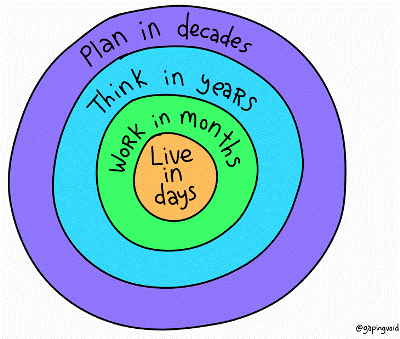Following our post ‘Why Experts Are Always Wrong About the Future‘, how can we overcome the limitations of expert forecasts, and create the disruptive changes that puzzle experts? Paul Graham a famous Venture Capitalist, shares some insights in an interesting post ‘How to Be an Expert in a Changing World‘. The post is worth reading in its entirety for its insights.
 Paul Graham starts from the same position as us: “Change that matters usually comes from an unforeseen quarter. So I don’t even try to predict it“. And he continues, “we are full of obsolete beliefs“. Hence he concludes, “the best strategy is simply to be aggressively open-minded. Instead of trying to point yourself in the right direction, admit you have no idea what the right direction is, and try instead to be super sensitive to the winds of change“.
Paul Graham starts from the same position as us: “Change that matters usually comes from an unforeseen quarter. So I don’t even try to predict it“. And he continues, “we are full of obsolete beliefs“. Hence he concludes, “the best strategy is simply to be aggressively open-minded. Instead of trying to point yourself in the right direction, admit you have no idea what the right direction is, and try instead to be super sensitive to the winds of change“.
There, Paul makes gives us two important practical pointers we can use:
- “If you’re sufficiently expert in a field, any weird idea or apparently irrelevant question that occurs to you is ipso facto worth exploring […] When an idea is described as crazy, it’s a compliment“
- “focus initially on people rather than ideas. Though the nature of future discoveries is hard to predict, I’ve found I can predict quite well what sort of people will make them. Good new ideas come from earnest, energetic, independent-minded people“.
Thus become expert in a domain, explore crazy ideas and hang out with other people prone to the same tendencies – a recipe for shaping the future in a disruptive manner?











